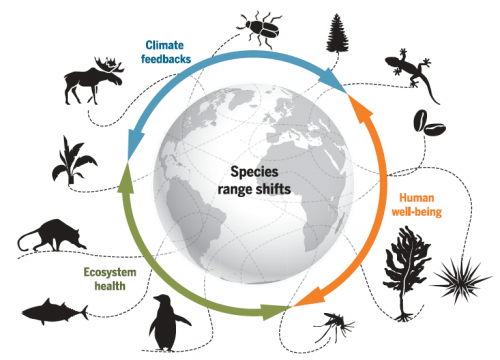

Climate change poses significant threats to marine ecosystems through various mechanisms, including rising sea temperatures, ocean acidification, and sea level rise. These changes disrupt marine life, affecting biodiversity, ecosystem functionality, and the services provided by the oceans. Understanding and mitigating these impacts is crucial for maintaining the health and resilience of marine environments.
Rising sea temperatures lead to coral bleaching, a phenomenon where corals expel the symbiotic algae living in their tissues. This weakens corals and makes them more susceptible to disease, reducing their ability to support diverse marine life.

Warmer ocean temperatures can cause shifts in the distribution of marine species, affecting food webs and ecosystem dynamics. Species may move towards cooler waters, leading to changes in local biodiversity and fishing patterns.

Ocean acidification, caused by increased CO2 levels, lowers the pH of seawater, making it more difficult for shellfish and corals to form their calcium carbonate skeletons. This weakens these organisms and affects their survival and growth.
Acidification can impact the base of the marine food web, including plankton that form the foundation of marine ecosystems. Changes in plankton populations can have cascading effects on higher trophic levels.
Rising sea levels lead to the loss of critical coastal habitats such as mangroves and salt marshes. These areas provide essential services, including storm protection and nursery grounds for marine species.
Higher sea levels result in increased coastal erosion, which can damage infrastructure, decrease sediment supply to beaches, and alter coastal ecosystems.